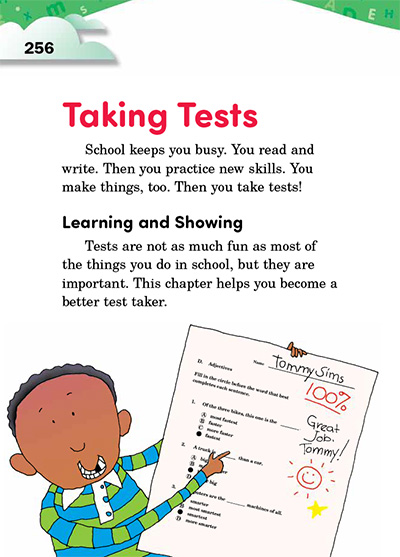Page 256 from

Start-Up Activity
Ask students if they know how squirrels prepare for winter. (They work hard to gather and store food.) Tell them just as squirrels store food to prepare for winter, students can pack away information to get ready for tests. This chapter presents ways that students can prepare to take different types of tests.
To warm up students' test-taking skills, have them take this silly squirrel test. Afterward, ask which type of question was hardest to answer? Which type was easiest?
Think About It
“Trust yourself. You know more than you think you do.”
—Benjamin Spock
Chapter Opening Downloads:

Start-Up Activity
Ask students if they know how squirrels prepare for winter. (They work hard to gather and store food.) Tell them just as squirrels store food to prepare for winter, students can pack away information to get ready for tests. This chapter presents ways that students can prepare to take different types of tests.
To warm up students' test-taking skills, have them take this silly squirrel test. Afterward, ask which type of question was hardest to answer? Which type was easiest?
Think About It
“Trust yourself. You know more than you think you do.”
—Benjamin Spock